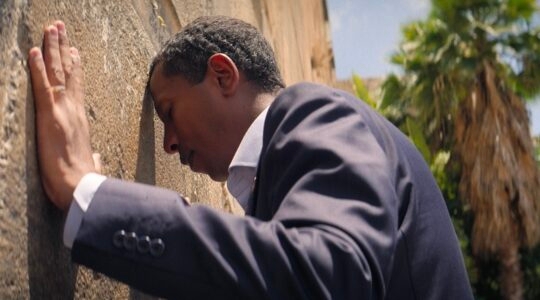It’s a common conundrum in North America: How do you save a small Jewish community in decline?
Winnipeg, Canada, has tried to cope with this challenge by recruiting Jews from overseas. I wrote a story this week on their experience: Seeking newcomers overseas, Winnipeg Jews don’t get what they expected.
One of the main architects of Winnipeg’s growth strategy, longtime Jewish federation CEO Bob Freedman, acknowledged to me that the program didn’t quite turn out as planned when most of the Jews that GrowWinnipeg helped bring turned out to be secular Russian Israelis.
Now Freedman is saying Winnipeg needs to focus on a different population segment if it is to survive: observant Jews (by which Freedman says he means modern Orthodox).
“As we live in a very tolerant North American society, and as we become more assimilated, we can’t lose a critical mass in terms of an observant community,” Freedman said.
Here’s why, according to Freedman: A Jewish community cannot survive in the long term without a committed core of people for whom Jewish living is a daily concern and who can serve as role models for others for what being Jewish is all about. Otherwise, a community eventually will assimilate into oblivion, he postulated.
“Maybe we should get more people actually living what we teach in day school, instead of something that’s theoretical in the classroom,” Freedman said.
“Even before the Pew study, you’d have to be living in a cave not to have understood what was happening,” he went on. “Time isn’t necessarily on our side.”
Winnipeg’s observant community isn’t seeing much growth. Synagogue membership is on the wane, and young people from the community who are most interested in serious Jewish life often are encouraged by their parents to move to places with more vibrant observant Jewish communities, such as Toronto.
But having a committed core is essential if Winnipeg Jews who are less Jewishly involved are to become more so, Freedman says.
“At the end of the day we have to have a component that lives a Jewish life and are seen as role models for others,” he said. “If I’m socializing with people who are a little more observant, I learn off them.” I might say to myself: “Hey – they ain’t much different than you or me. They just happen to observe Shabbat and Yom-tov and dietary laws, but otherwise they’re just like you or me.”
Without a committed core, Jews interested in Judaism won’t have opportunities to deepen their engagement with Judaism, he warned.
While Freedman says he has shared his thinking with federation staff, it’s unclear whether or not his musings will morph into a real plan. There’s not much time for Freedman: He is retiring later this year.
It’s also far from clear that Winnipeg has sufficient infrastructure or critical mass to draw Orthodox Jews. It’s not, after all, Houston.

Help ensure Jewish news remains accessible to all. Your donation to the Jewish Telegraphic Agency powers the trusted journalism that has connected Jewish communities worldwide for more than 100 years. With your help, JTA can continue to deliver vital news and insights. Donate today.





